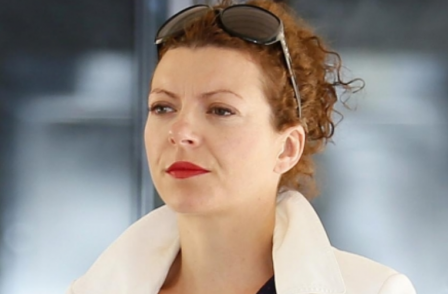
The criminal charge of conspiracy to commit misconduct in a public office used against journalists paying for stories is a new one for UK courts.
So the four completed trials can be regarded as test cases. And on the evidence so far this is a charge that has failed the test.
The public employee who takes money for a story has acted corruptly, and many are now in prison as a result of evidence supplied to police by News Corporation. But for the tabloid journalist paying for stories is the bread and butter of their working life.
And the best stories often involve our public institutions. Indeed, many would argue that a journalist's first duty is to find stories that hold our public bodies to account.
It has always seemed a stretch to charge journalists with this offence because they aren't holders of public office, and juries appear to agree.
In the hacking trial Rebekah Brooks was acquitted of the charge and the jury failed to agree a verdict on Clive Goodman and Andy Coulson, who were accused of paying a policeman for royal phone directories (Coulson was however convicted of hacking).
The jury also failed to reach a verdict in the case of Sun reporter Vince Soodin, accused of authorising payments to a police officer for stories. He faces a retrial next year.
Daily Star Sunday journalist Tom Savage was acquitted after being tried for buying stories from a prison officer.
But a former News of the World journalist, who can't be named for legal reasons and stood trial alongside Savage, is facing a possible prison sentence next month. They were found to have paid for stories revealing soft treatment in prison for notorious murderer Jon Venables.
Yesterday there was huge relief for Sun Whitehall editor Clodagh Hartley as a jury appeared to agree that she acted in the public interest by delving beyond government spin and paying a HM Customs press officer for stories
She has however already paid a huge personal cost. After her arrest in May 2012 she has suffered more than two years of what must have been sheer hell on police bail.
Hartley has said she can't see herself returning to journalism so a promising career on the UK's top-selling national newspaper has been destroyed.
As with the case of Soodin, Hartley made clear she was never given any indication that paying public officials for stories was wrong. And let's remember she was working for News International which had money to pay for some of the best legal brains in the land.
Put simply, the paper said "we pay cash for stories" on page two. There was no warning given about not offering stories if you were a public official.
The motives of Hartley, Soodin and the others weren't personal enrichment – they simply wanted to do their jobs as journalists and give readers the best stories they could.
Who were the victims of their alleged crimes? The only victims that I can see are the journalists themselves and their unfortunate families.
The only people profiting from the payments were the public officials themselves and the owners of The Sun, the shareholders of News Corp.
If anyone deserves prosecution it is the senior executives at News International and News Corp charged with ensuring the company behaved lawfully and responsibly – not footsoldiers like Hartley.
Email pged@pressgazette.co.uk to point out mistakes, provide story tips or send in a letter for publication on our "Letters Page" blog
